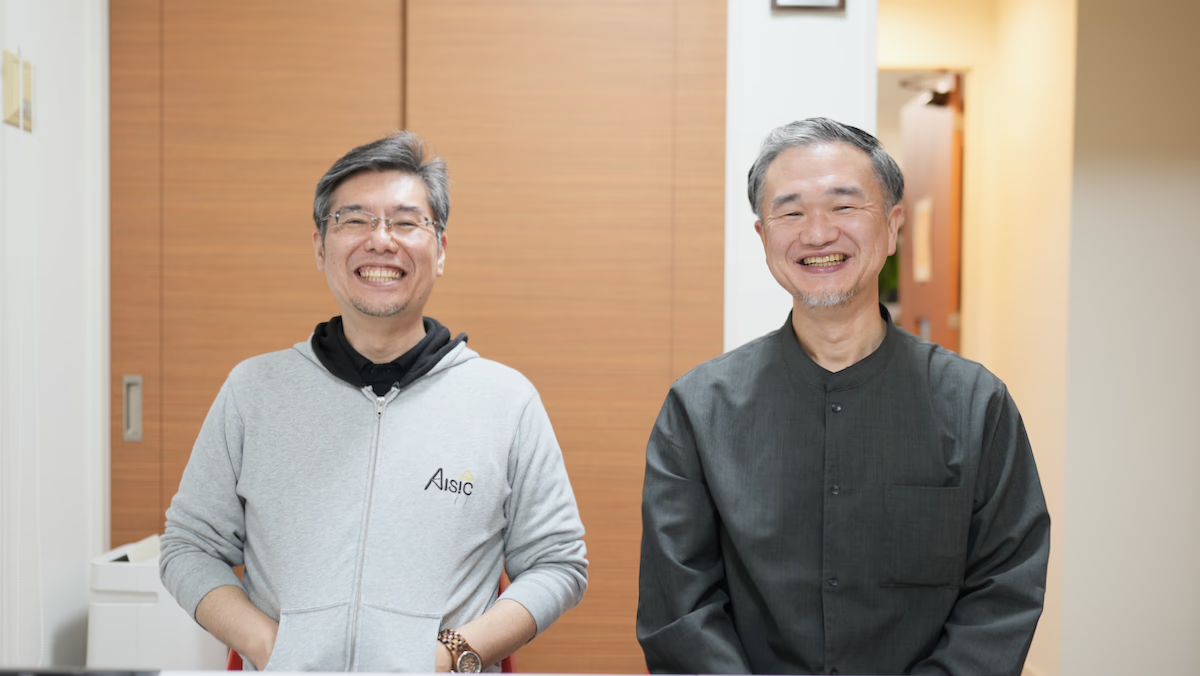2023年、本橋大輔を中心に3名のメンバーではじまった、kintone担当者さまのための業務改善ラボ「キン担ラボ」。kintone ユーザーコミュニティとの関わりも深めており、6月にkintone hive 松山2023で神山町役場の事例を発表、9月にはkintone Café徳島vol.5を復活させました(詳しくはこちらの記事をご覧ください)。
今回は本橋が、キン担ラボがお世話になっている、kintoneエバンジェリストの久米純矢さんを訪問。kintone Café福岡のこと、kintoneのもつ可能性などをテーマに対談させていただきました(聞き手:中嶋希実、構成:杉本恭子)。
久米純矢さん(株式会社AISIC 代表取締役)
2003年九州工業大学情報工学部電子工学科卒業。複数社のソフトウェア開発会社でシステムエンジニア、プログラマとして働いたのち、2012年AISICを設立(2014年に法人化)。2011年にkintoneに出会い、2013年からkintone Café福岡の運営に関わる。2014年、kintoneエヴァンジェリストに就任。https://www.aisic.jp/
本橋大輔(株式会社モノサス キン担ラボ)
2000年群馬工業高等専門学校環境工学専攻科卒業。北陸先端大学大学院 知識科学研究科修士課程修了。2002年株式会社ジャストシステムに入社。2012年転職を機に神山へ移住。2020年モノサスに入社。kintone との出会いは2013年に参加したハッカソン。
日常の困りごとを技術で解決したい
― はじめに、久米さんご自身について聞いてみたいなと思っています。今に至る経緯をさかのぼって伺えるとうれしいです。
久米さん(以下、久米) もともと、九州工業大学電子情報工学科出身ですので、学生の頃はプログラミングの授業をたくさん受けていたのですが、コンピューターの前にじっと座っているのは性に合わないなと思っていたんですよね。それよりも、大学生協で学生組織をつくったり、大人と一緒に商品開発をしたり、セミナーを企画したりするほうが面白くて。プログラムを書く将来像はイメージできないし、就職活動でも販売や営業などの職種を探そうと思っていました。
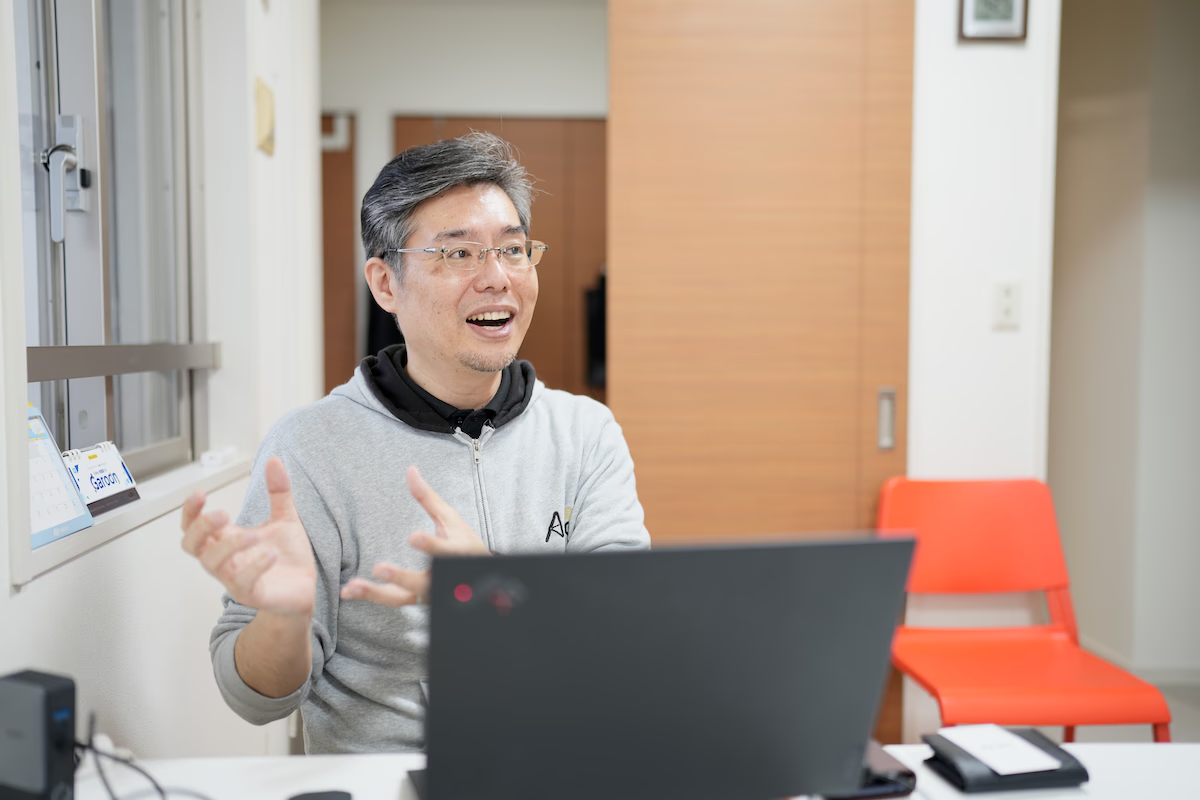
久米 ところが、ソフトウェア開発を志望する友人に「大学で勉強したプログラミングで仕事をしないのか」と言われて。「苦手なことができるようになったら人生プラスだな」と考え直して、久留米のソフトウェア開発会社に就職しました。新入社員の頃は、本当にプログラムが書けなかったので、ものすごく勉強しましたね。そんなときに、飲み屋で隣に座ったおじさんに「久米くん、SEやってるんやろ」と相談されたんです。
ー どんな相談をされたんですか?
久米 「基幹系の販売管理システムに入力するために、部下からエクセルファイルを集めると数式が壊れて返ってくるので困っている」と。しかも、10人くらいからエクセルファイルを集めて、2〜3日かけて入力していると言うんです。ファイルは数式をロックすれば壊れない。あるいは、フォルダにファイルをまとめてボタンを押すと集計するしくみをつくることもできます。でも、彼にはその方法がわからないわけですね。
そのときに、日常の業務のなかには、大きなシステムでは解決できない困りごとがあるんだと気づきました。僕らのようなエンジニアは、その困りごとを改善するエッセンスを提供できる。そういう仕事でお客さんに喜んでもらいたいと思ったことが、僕の原体験のひとつになっています。
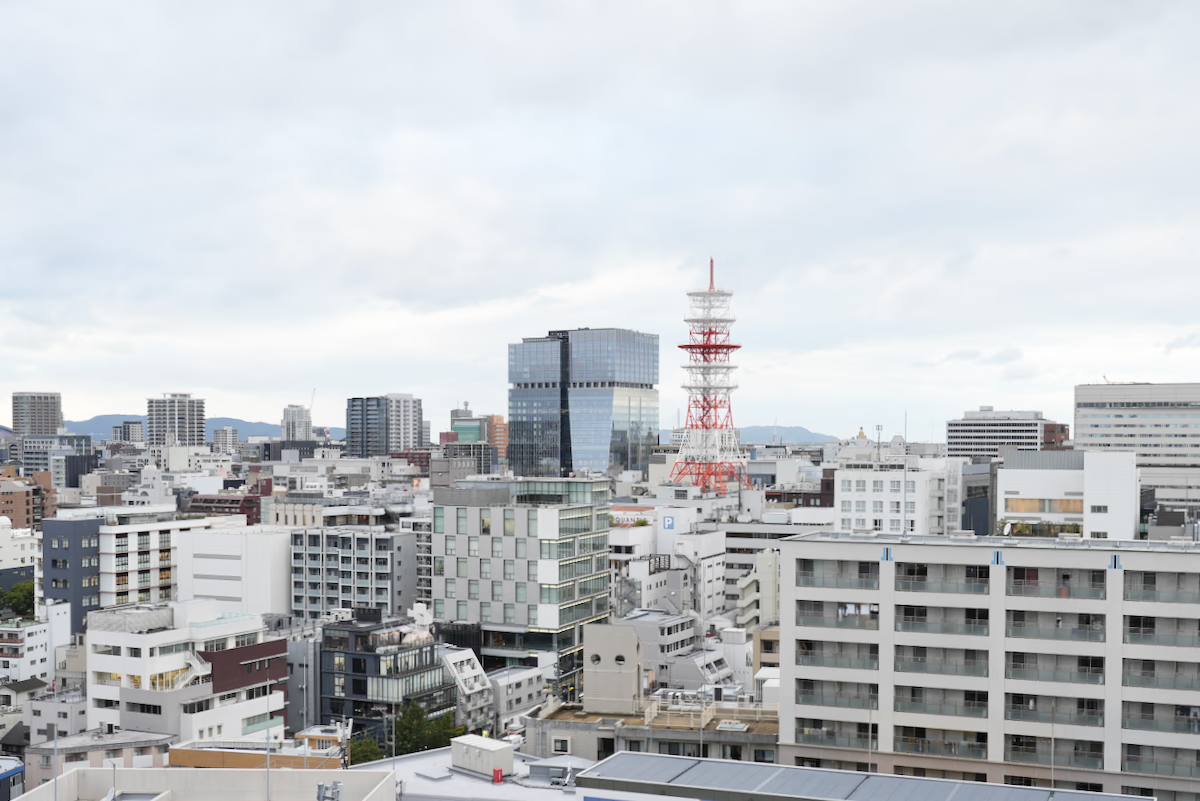
便利な立地にある久米さんのオフィスには、さまざまな人が立ち寄っていくそう。
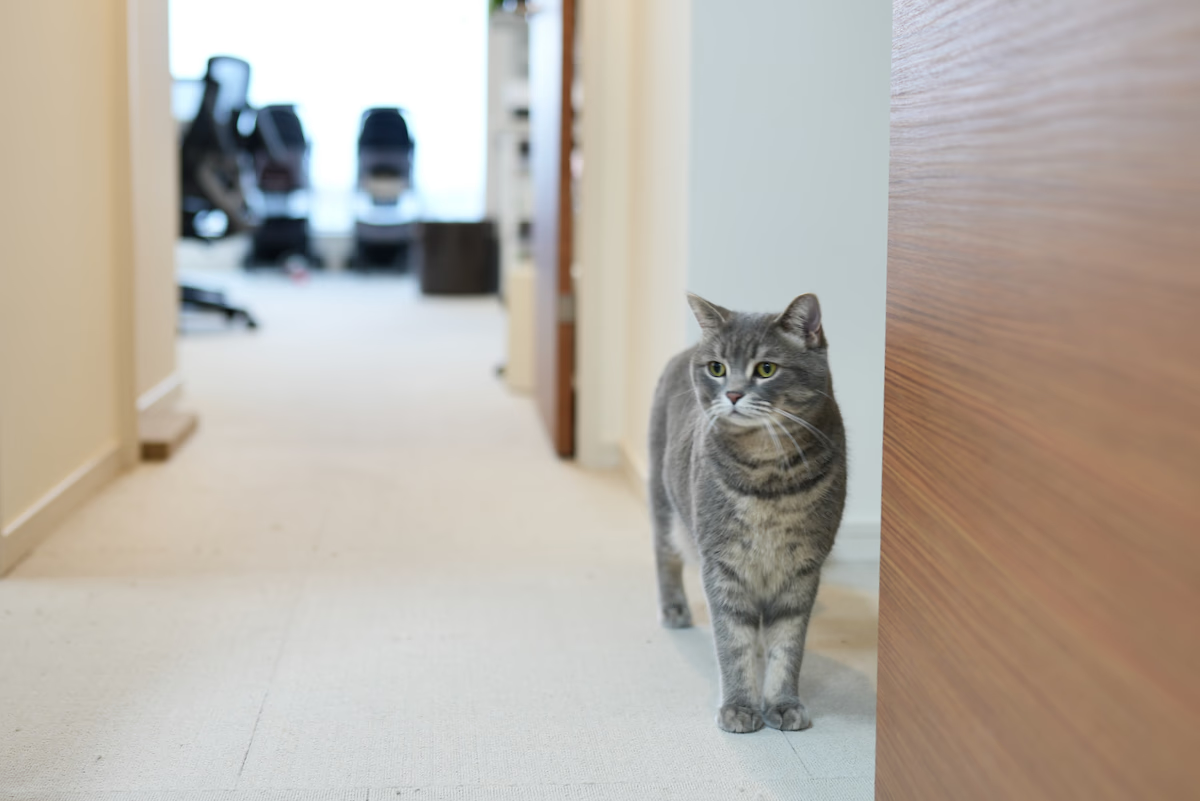
オフィスには2匹の猫がウロウロ。取材の様子を見に来たのはうめまる。
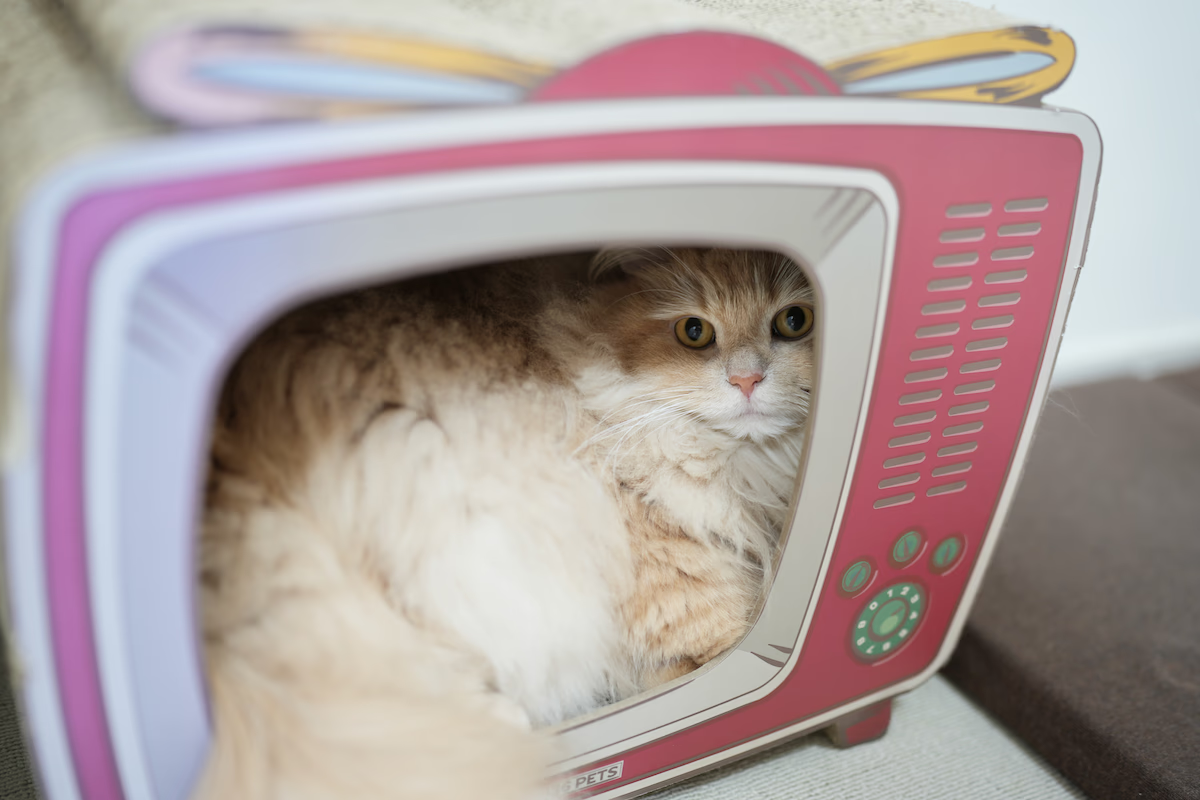
取材を見守っていてくれたししまる。
kintoneには最適解を模索できる“余白”がある
ー kintoneを使いはじめたのも、その原体験と関わっているんですか。
久米 kintoneがサービスインした2011年にセミナーに参加して、「Accessがインターネットに載ってる!こんなに簡単に業務システムの元がつくれるなんてめちゃくちゃすごいじゃん」と興奮しましたし、「これなら困っている人たちの問題を解決できる!」とひとりで盛り上がっていました。
ー 久米さんは、kintoneのどんなところに魅力を感じたのですか。
久米 システム開発の経験がない人も、僕らのようなエンジニアも同じ環境で触れるサービスは世の中にあまりなくて。どちらかというと、開発者側はデータを壊す可能性がある人には触らせたくないからです。ところが、kintoneでなら業務改善したい人たち自身につくってもらって、我々がプラスのエッセンスを入れるとよりよいものにできます。まさに、kintoneのキーワード「伴走支援」をしながら、一緒につくっていけるのがkintoneの魅力だなと思っています。
本橋 kintoneは、余白の大きさに面白さがあると思っています。足りない機能を拡張できるAPIが用意されているし、エンジニアがカスタマイズするためのドキュメントやライブラリ、開発者をサポートする仕組みも今は整っています。それらを使うと、エンジニアは学習コスト低めでスッと入れるんですよね。
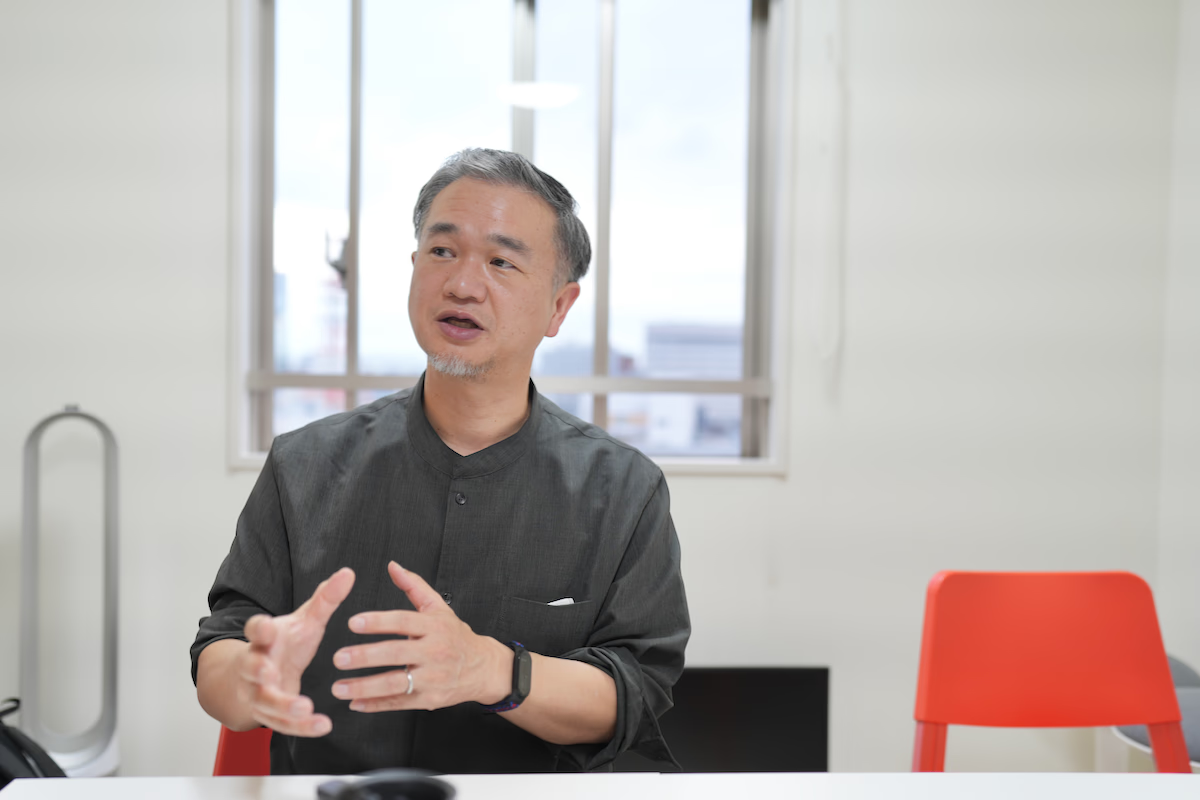
本橋 もちろん、世の中にはAPIが提供されていてカスタマイズできるWebサービスはたくさんあるのですが、kintoneは妙に入りやすい。うまく言葉にできないのですが、エンジニアぽくないとっつき方ができるというか、ちょっと呼び出してスタイルを変えたらすぐにカスタマイズがはじめられるんです。
久米 僕や本橋さんのように、システム開発でやってきた立場から見ると、物足りないところもあるんです。80点くらいの出来栄えだけど、使い方次第で100点に近づけるプロセスを構築できる。細かく手を入れながら、自分たちで最適解を模索できる道具だと思っています。「お客さんが困っていることをどう解決できるのか」という視点でアプローチできるエンジニアに、kintoneはすごくハマるんじゃないかという感じですね。
kintone界隈のコミュニティの面白さ
ー 有志ユーザーによる勉強会「kintone Café」のお話も伺いたいです。はじめて参加されたのはいつですか?
久米 2012年の第2回kintone Café 福岡です。サイボウズの営業の方に「kintoneをもっと知りたい」と相談して紹介してもらいました。第3回はお手伝いをさせてもらって、第4回からは主催を担当するようになり現在に至っています。
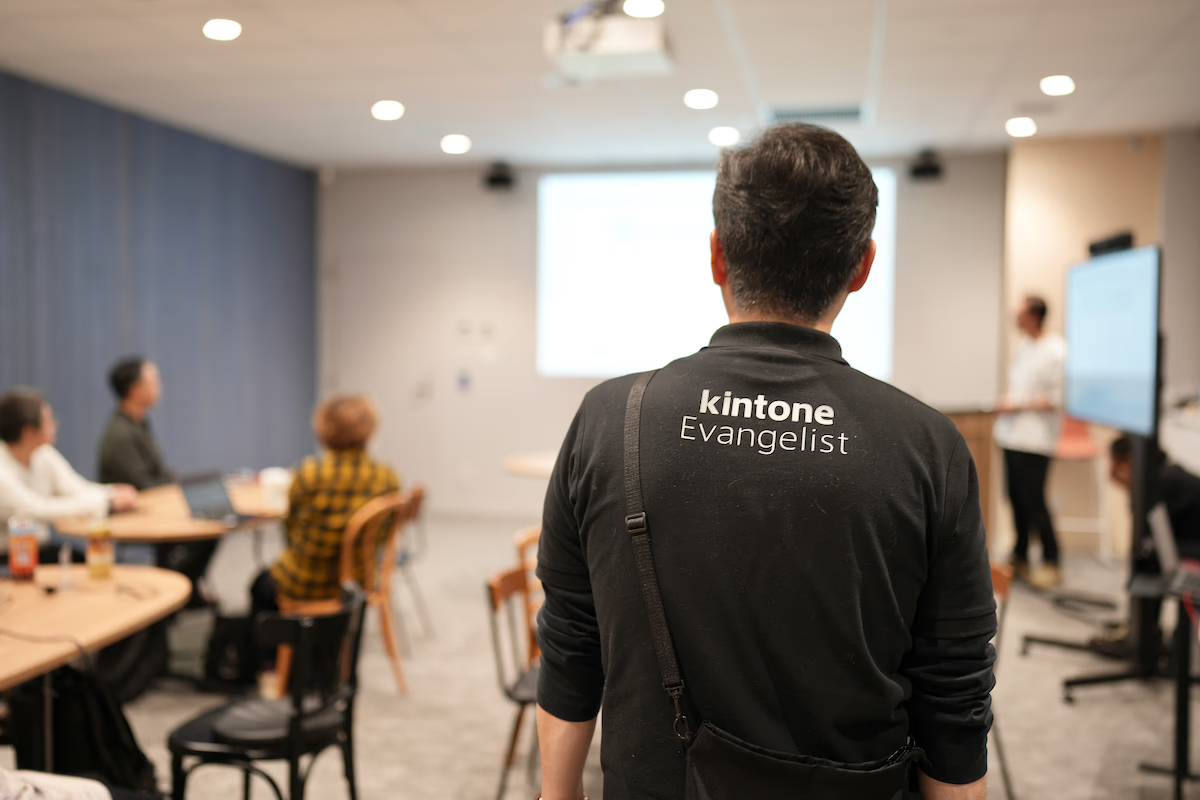
この日はkintone Café福岡の開催日。
久米 この10年の間に、いろんな試行錯誤がありました。いろんな人に来ていただくには、開催日は平日と土曜日ならどちらがいいのか?午前中にテクニカル系、午後にユーザー系と二部開催したこともあります。エヴァンジェリストにもなりましたし、広げ役として開催しなければいけないけれど「なんで自分ばかりが」と行き詰まりを感じてしまった時期もありました。
ー ちょっとしんどくなっちゃったんですね。
久米 はい。そんなときに、コミュニティマーケティングのイベント「CMC Meetup」で、主宰者の小島英揮さんのセッションに参加して。コミュニティ運営においては、関わってくれる人を増やす努力が大事なんだと気づいたんです。実際に、思い切って頼んでみれば登壇してもらえますし、頼んだからにはちゃんと場をつくらなければと前向きになれます。自分のなかで、kintone Caféに対するモチベーションが変わりました。本当に嫌だったら登壇を断られるだろうし、「お願いしてみよう」と吹っ切れたのが大きかったですね。
本橋 僕もkintone Café徳島をどう盛り上げたらいいかわからなくて。ひとまずあちこちで参加させてもらおうと思っている段階なので、めちゃめちゃ参考になります。
ー kintoneを知りたい気持ちではじめたのに、もっとコミュニティを広げていこうと思ったのはどうしてですか。
久米 今のkintone Café福岡は、みなさんにとっては知識を得る場であり、僕にとってはコンサルとしてとても重要な場づくりやファシリテーションのスキルを磨く場にもなっています。そう思えるようになってから、また向き合い方が変わってきました。また、kintone Caféにはいろんな業種の方が参加されるので、自分の引き出しが増えるというメリットがひとつあります。
kintone Café福岡ではふだんの業務で困っていることをテーブルに出してもらい、グループワークで解決案を出し合う、「お悩み解決セッション」という場を設けています。人間は不便に慣れるので「そんなもんだ」と思ってしまうけれど、潜在的な課題を言語化するプロセスを醸成する場をつくるのはとても大事なことだと思っているんです。
kintone Café福岡の「お悩み解決セッション」
ー 今のお話を、本橋さんはどんな感じで聞いていたんですか。
本橋 僕はまだそこまでたどり着けていないなと思いながら聞いていました。今は、ご相談いただいて解決の方法とそのための費用はお話できるけれど、それはたぶんカタログを開いて「これを買ったらできますよ」と言うのと同じだったのかな、と。先ほど久米さんは、「お客さん自身でkintoneをカスタマイズして、自分たちでつくったシステムとして使ってもらいたい」とお話されましたが、それがファシリテーションのお話にもつながっているんだろうと思います。
「お悩み解決セッション」では、場の力を借りて自分の課題をさらに深く掘り下げて、解決のアイデアを持ち帰るわけですよね。すると、潜在的にあった課題が見えるようになり、それと向き合いながら仕事をできます。自分の業務を改善するためのくさびみたいなものが、その場でひとつできあがるということじゃないかと思いました。
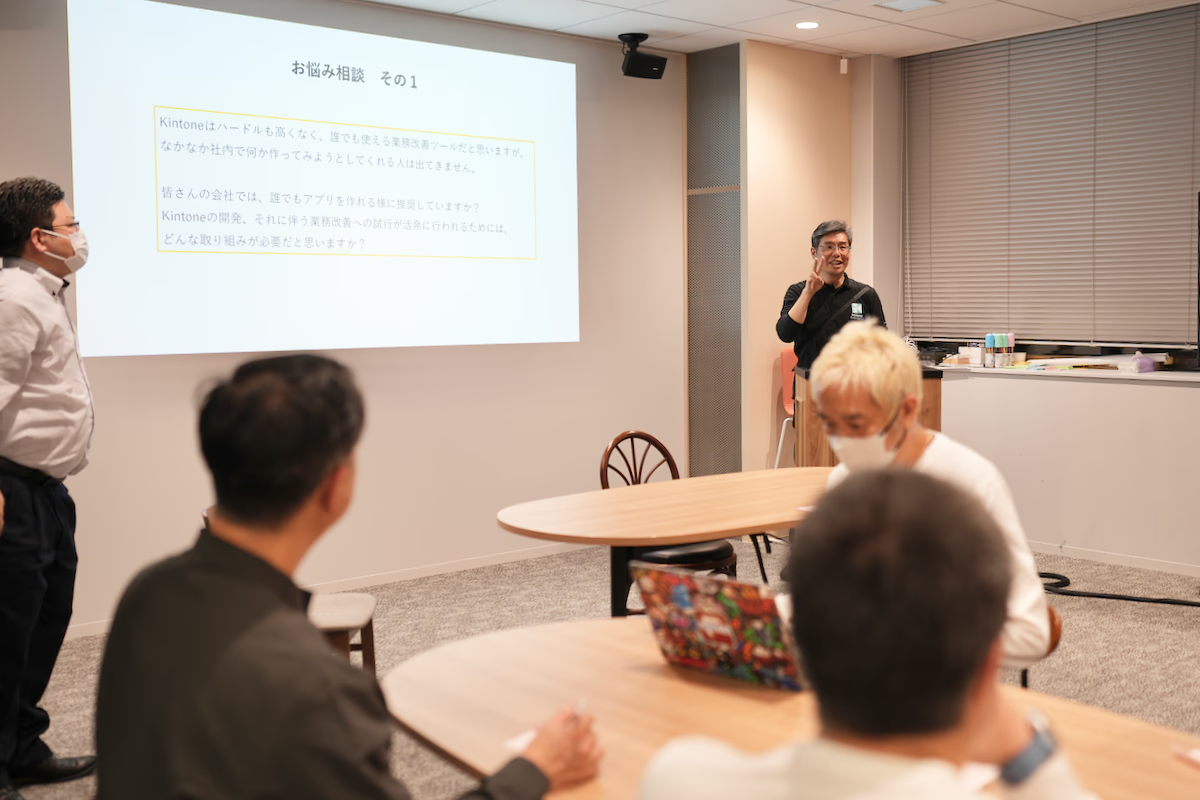
お悩み解決セッションには、久米さんのクライアントである不動産業者の担当者の方から、社内に活用を推進する方法について相談がありました。
久米 kintone Café福岡を運営するなかで、参加者のみなさんががんばるのはCaféの場ではなくて、自分の組織に帰ってからじゃないかと思ったんです。そこで、「題材を出した人が一番持ち帰るものが大きい場にしたい」と運営メンバーに相談したら、「めっちゃいいじゃん」と言ってくれて「お悩み解決セッション」がはじまりました。この方法だと、「自己紹介と困っていることを一枚書いてください」と言うだけでいいですし、気軽に発表してもらえるんです。
kintone Caféに来る方は、その組織で一番kintoneに詳しい方です。でも、社内に相談できる人がいないから、kintone Caféに来られるわけですよね。「こういうアイデアがあるんだな」と元気になって帰ってもらえる場じゃないと意義がない。一度お悩みを発表した方が、半年後にまた新しい課題を発表してもらってもいいんです。議論の継続性が見えると、はじめて来た人も「ここに来たら解決できるかもしれない」と勇気をもらえるじゃないですか。
本橋 めちゃめちゃ参考になりました。kintone Café徳島でも真似させてもらおうかなと思います。ただ、なかなか新しい参加者につながるのは難しそうです。
久米 各地のkintone Caféに顔を出すと、参加者の大半はよその地域から来ていたりします。でも、kintone担当者は、あまり出張させてもらえない総務部などの方も多いんです。せっかくなら、地元開催のときしか参加できない方に来てもらえるといいですよね。サイボウズの営業メンバーはkintoneユーザーを知っているので、「困っている方がいたら声をかけてほしい」と相談するといいかもしれません。きっとつないでくれると思います。
ギバーズ精神あふれる開発者コミュニティ
ー kintoneの開発者同士は、同じお客さんを取り合うライバルみたいな関係にならないんですか?
久米 kintoneコミュニティには、自分が得たものを何かにフィードバックしようとする文化があります。ライバルといえばそうだけど、もうちょっと違う関係性のなかでやりたいと思っている感じですよね。
本橋 どちらかというと、同じOS上で開発している人同士みたいな関係性があるので、みなさんすごくギブが多いですね。
久米 そうそう。ギバーズ精神が強い方が多いので、むしろテイクだけする人に対しては辛辣なまなざしすらあります。僕はここ数年、kintoneのプロダクト開発をしているサイボウズのメンバーに、フィードバックを返す会をやっています。お客さんから直接聞いている要望を伝えることで、彼らがより良いライブラリやサービスをつくってくれると、僕らもまたいいものを提供できますから。2023年11月には、開発者向けのコミュニティ「devkin meetup!」を立ち上げたんです。本橋さんもスタートメンバーとしてジョインしてくれました。今後は、開発者としての勉強会を開いたり、kintone開発のノウハウを共有していきたいと考えています。
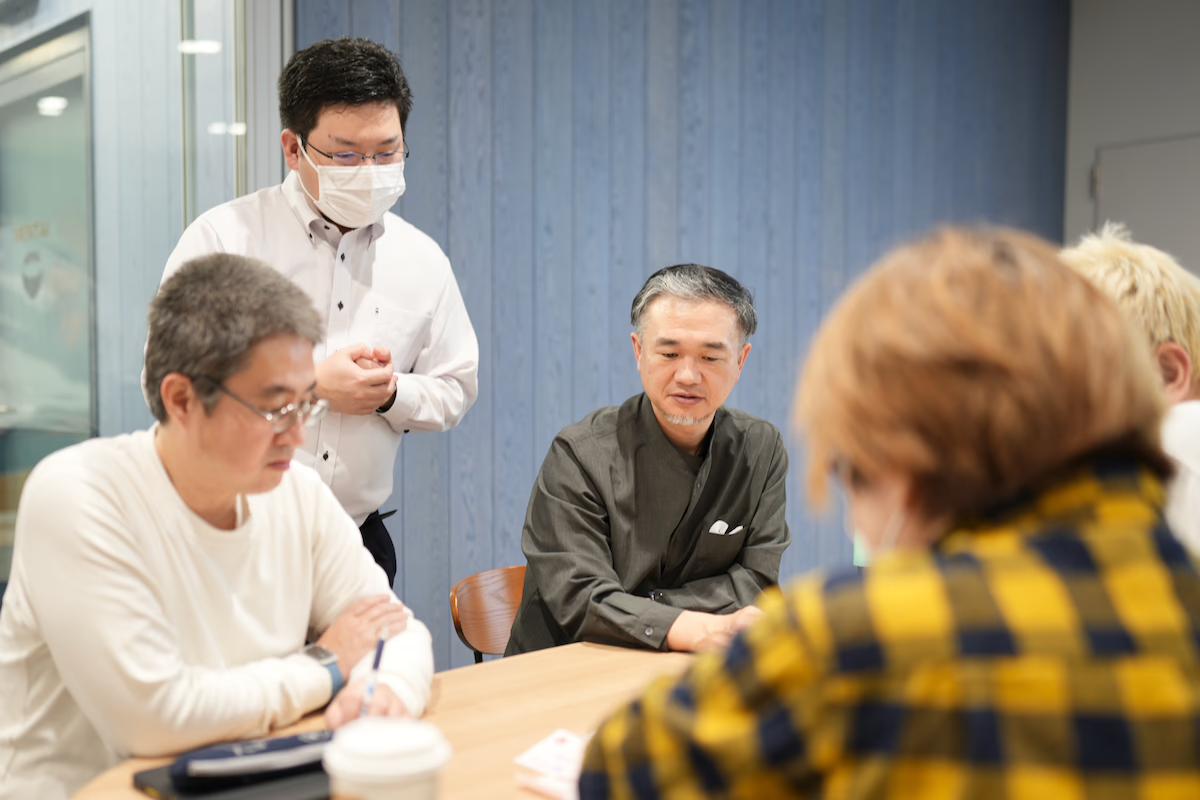
お悩み解決セッションには、久米さんのクライアントである不動産業者の担当者の方から、社内に活用を推進する方法について相談がありました。
本橋 たぶん、kintoneの開発者って楽しんでいると思うんです。今までは、エンジニアが開発したものを他の人に使ってもらう喜びがあったけれど、kintoneはお客さんと一緒につくっていける喜びがあるというか。僕はその楽しさをkintone Café徳島で広めたいと思っています。
でもそれは「kintoneを使ってみんなで一緒に遊ぼうよ」でしかなくて。久米さんのようにみなさんのお悩みを持ち寄ってモチベートする視点はもっていなかったなと思いました。「みんなは社会人だから遊んでばかりはいられないんだな」という大きな気づきがあったというか(笑)。とても大きな収穫をいただきました。ありがとうございました。
― ありがとうございました。またいつか、kintone Café福岡と徳島のようすを聞かせてください。
